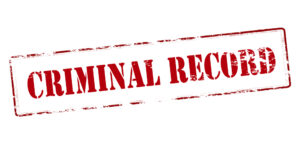In short, a criminal record is proof of a person’s criminal convictions for which they have not received a pardon. A criminal record can impact your employment, immigration status, travel abroad and how you are treated within the criminal justice system.
Criminal records are maintained by the Canadian Police Information Centre (CPIC) and can be accessed by law enforcement agencies both in Canada and abroad. If you were convicted of a criminal offence and you have not received a pardon (formally known as a “record suspension”) or been discharged, the offence will be on your criminal record.
There is a great deal of confusion, however, about what ends up on a criminal record because not all criminal charges result in convictions, and not all offences are criminal offences.
What is a Criminal Offence?
A criminal offence is a special type of offence that involves both a guilty act (legally known as the “actus reus”) and a guilty mind (the “mens rea”), and which is set out in specific pieces of legislation, such as the Criminal Code or the Controlled Drugs and Substances Act. Common criminal offences include assault, theft or drug trafficking.
Not all offences or situations where you “break the law” are criminal, however.
For example, a traffic ticket is not a criminal offence. That is to say; you will not get a criminal record if you are convicted of speeding under the Alberta Traffic Safety Act. You will similarly not get a criminal record if you violate the National Parks Act. These types of offences are commonly referred to as “regulatory offences,” and while the punishments can be severe and often impact your life significantly, they are not criminal offences.
Regulatory offences are not criminal offences because they rely on the principles of “strict liability” or “absolute liability”; that is to say, you do not have to have a guilty mind in order to be convicted of the offence. Proof that you have committed the offence itself, that you engaged in the guilty act, is often enough to ground a conviction. The Supreme Court of Canada distinguished the different types of offences in Canada in the landmark case of R v. Sault Ste Marie. Learn more about regulatory offences here (Article to come).
Will I get a criminal record if I am charged with a crime?
Just because you are charged with a criminal offence does not mean you will get a criminal record. Depending on the facts of your case, your background and the quality of your legal representation, there are a number of possible outcomes that will not result in a criminal conviction. Examples of these outcomes include:
- Withdrawal of charges;
- Stay of proceedings;
- Alternative measures (learn more about Alternative Measures here [Article to come]);
- Peace Bonds; and
- Absolute discharges.
Another possible outcome is a conditional discharge – this is a sentence that can be imposed if you are convicted of a crime. Only certain offences and offenders are eligible for a discharge. A conditional discharge becomes absolute upon the completion of a period of probation. Once a discharge becomes absolute, you are deemed to have never committed the offence, and the offence will not be on your criminal record.
Learn more about discharges here. (Article to come)
What is a Criminal Record Check?
A criminal record check is a search of the CPIC database and shows what criminal convictions a person has to their name. A criminal record check should only show a list of your criminal convictions; however, what exactly shows up on a criminal record check can depend on the police service that does the check.
On a criminal record check, we have found that some police services will show charges that have been stayed or charges which have not yet been concluded. Whether this is, in fact, legal will likely be the subject of a lawsuit in the future. In Alberta, the decision of Edmonton (Police Service) v. Alberta (Information and Privacy Commissioner), 2019 ABQB 587 provides an excellent review of the issue.
A criminal record check is not to be confused with a vulnerable sector check, which can show different information.
Learn more about criminal record checks and vulnerable sector checks here (Article to come).
What is a Pardon in Canada?
In Canada, a pardon is officially called a “Record Suspension.” A record suspension removes a criminal conviction from your criminal record, as well as the CPIC database.
After a certain amount of time has passed since you completed your sentence, you may be eligible to apply for a pardon. This length of time, and whether you are eligible to apply for a pardon at all, depends on the offence and how the Crown proceeded with the prosecution.
Learn more about pardons here (Article to come).
How do I get a Pardon in Canada?
You have to apply for a pardon from the Parole Board of Canada. You will be required to gather certain information and documents and submit them, along with a filing fee, as part of your application. Only certain offences and offenders are eligible for a pardon in Canada.
Give us a call today to discuss your criminal record or to determine if you are eligible for a pardon. Our initial consultation is free and confidential.
Our Offices
Calgary Office
630 6 Ave SW Suite 520, Calgary, AB T2P 0S8
Airdrie Office
620 1 Ave NW Unit 4, Airdrie, AB T4B 2R3

